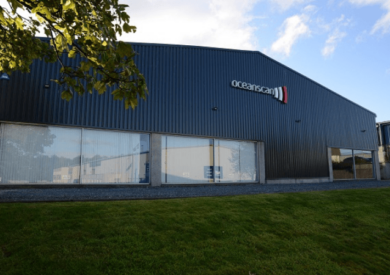

A Geotechnical Engineer’s Thoughts on Stress
What is stress? Stress in engineering terms will always be defined as force over area, yet stress in human terms is vastly different. Whilst engineering stress is clearly defined and measurable, human stress is far from it. The same situation may cause stress in one person but not in another.
In order to visualise stress, imagine the following situation: Summer holidays at the beach with your partner and kids. Got it? Great. The first image in your head is (hopefully) full of laughter, sunshine and sandcastles. Ok, we all know that this idyllic picture only lasts so long, before the kids are either bored or start to squabble, but it’s a nice image.
To turn the mood around, Mum suggests, let’s ‘bury’ Dad in the sand! So, everyone starts digging a hole for Dad, he lays down in it, smiling because he has the ‘easy’ job; everyone is having a great time again. The kids keep shovelling more and more sand onto Dad, jumping up and down on the sand to compact it. Dad is starting to feel slightly uneasy, as the weight of sand builds up (increase in stress).
Now, assume that the stresses on top of Dad are so high that he can no longer get out, (meaning the stress has built up to an unbearable level) he feels abandoned, unable to change the situation, because Mum has disappeared to supervise the kids in the sea. How can we help Dad (hypothetically of course)? I would hope that any geotechnical engineer would respond in the same way: wait until the tide comes in, the water level increases and the effective stress decreases!
Of course, in reality, this situation would never arise. Kids don’t have enough patience; Mum would intervene before Dad actually got buried and Dad would loosen the sand himself, whilst the kids were piling more sand on top of him, so he would never be unable to free himself.

This metaphor speaks to the fact that we sometimes feel helpless and hopeless when we get stressed, because we don’t think in the same way we would if we weren’t stressed. It also shows that sometimes help can be external (the tide coming in), we just need to reach out (or wait for it to reach us).
It is worth remembering the following:
- We are all different, with different life experiences that have made us into who we are today
- We are all exposed to different stress factors at any one time. These factors can be personal, work related or related to one’s mental predisposition
- The feeling of stress is based on the perception of an individual in a certain situation
At the point where we become stressed, at that very moment, we only see the world through our own eyes and from inside our head. If we acknowledge that stress is based on an individual’s perception with a limited field of vision, then we are one step closer to finding a solution (which is what we engineers like to do!).
People around us will see things differently, will have a different perspective on things, will be able to see the bigger picture and will be able to help and find solutions, if we let them. The key is to understand that when we are stressed, we don’t tend to be able to look at things objectively anymore, we need others to help us realise the bigger picture again.
I’m definitely not claiming to have the solution to eliminate stress, nor am I saying that stress is ok. The purpose of this blog is to focus on a perspective of what stress does (limit the field of vision) and what we can do if we are affected – trust in our social network, time and external forces, to help our perspective.
Author: Yvonne Ainsworth, Director, GDG


